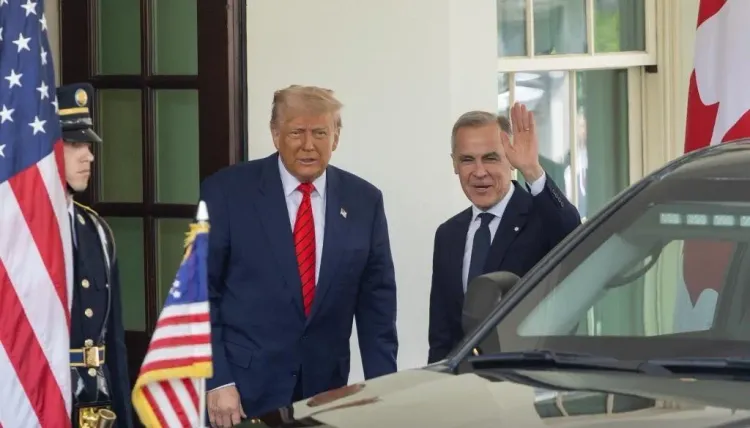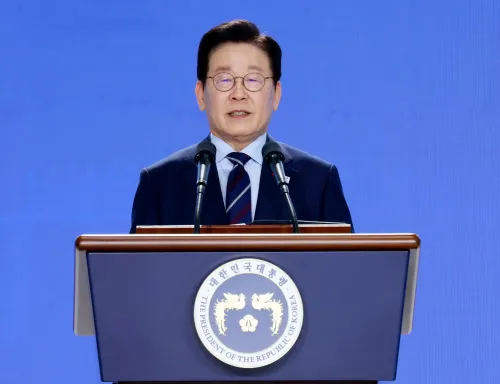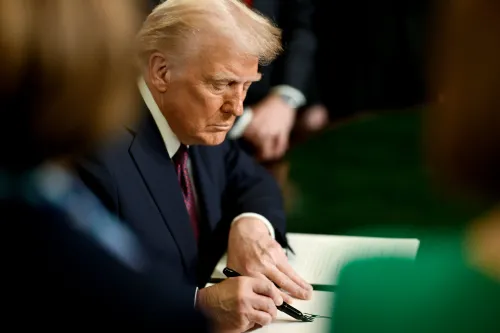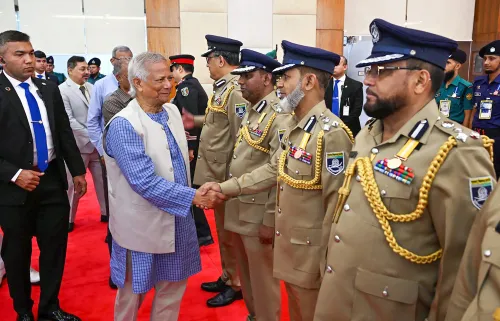Were Canadian PM's Talks with Trump Truly Constructive?

Synopsis
Key Takeaways
- Canada and the US are engaged in ongoing tariff negotiations.
- Concerns persist over the impact of tariffs on the Canadian auto industry.
- Future talks are expected to take place at the G7 summit.
- Trump has reiterated controversial statements about Canada's status.
- Both leaders express a willingness to continue dialogue.
Ottawa, May 7 (NationPress) - Canadian Prime Minister Mark Carney described his discussions with US President Donald Trump at the White House as extensive and productive, despite differences on the lifting of tariffs and the notion of Canada being the '51st state,' as reported by CBC News' live broadcast.
In a post-meeting conference held in Washington, Carney stated that he and Trump plan to continue their discussions in the upcoming weeks and will reconvene in person at the G7 summit in Kananaskis, Alberta, according to the Xinhua news agency.
Carney emphasized to Trump that repeating the '51st state' concept is not beneficial, noting that Trump is known for his candid remarks. 'He recognizes that we are engaged in negotiations between two sovereign nations,' Carney added.
When asked if he was returning to Ottawa with any significant advancements in resolving the trade conflict, Carney mentioned there are specific matters to address and expand upon.
'These are the types of discussions necessary for finding solutions,' he remarked.
While Trump made it clear that tariffs, particularly those affecting the auto industry, would remain, Carney responded, 'We'll see.'
Concerns are mounting among Canadian workers and suppliers in auto manufacturing regions, as the prolonged tariff dispute raises fears of diminished sales for completed vehicles, as reported by CBC News.
'If he (Trump) succeeds in halting production in Canada and Mexico, it doesn’t guarantee new production will emerge in the US,' stated Flavio Volpe, president of Canada’s Automotive Parts Manufacturers’ Association.
Volpe expressed hope that Carney would announce additional meetings with Trump, saying, 'I want to know that we have set a date for the next game.'
Trump, prior to Carney's arrival, posted a statement on his Truth Social account, minimizing Canada’s significance to the US economy.
'We don’t need their cars, their energy, or their lumber. They, however, need everything from us!' Trump stated.
During an earlier media briefing in the Oval Office, Trump referred to the US-Mexico-Canada Agreement (USMCA) as a 'transitional step' that 'will conclude fairly soon,' without committing to its renewal.
Carney argued that the agreement serves as a 'foundation for broader negotiations,' indicating that some aspects of it may be modified while new elements could be introduced during potential renegotiation.
Trump reiterated his annexation threats towards Canada, suggesting it would be a 'wonderful marriage' and referred to the border as 'artificial' once again.
He remarked that being the '51st state' would bring numerous advantages, including tax reductions and free military support.
While Carney interjected to assert that Canada is 'never for sale,' Trump retorted, 'Never say never... time will tell.'
The United States has imposed a 25% tariff on all goods, and 10% on energy and potash not included under USMCA. Additionally, a 25% tax is applied to Canadian steel and aluminum, as well as 25% on automobiles not compliant with USMCA.
In retaliation, Canada enforced its own 25% tariffs on non-USMCA compliant vehicles and additional charges on nearly $43.6 billion worth of steel and aluminum products, along with consumer goods such as juice, spirits, computers, apparel, and cosmetics.
Statistics Canada reported a decline in trade with the US in March following the implementation of new tariffs.
Carney's visit to Washington was his first international trip since securing a minority Liberal government in last week’s federal election. He indicated that this trip would initiate a series of discussions regarding tariffs, military cooperation, and other matters with the United States.










